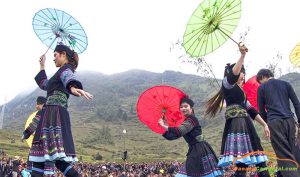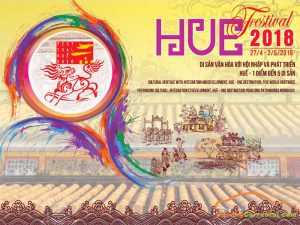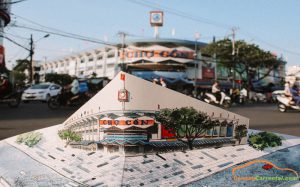
Ban Gioc waterfall, a famous tourist attraction located inside the Non Nuoc Cao Bang Geopark
The decision was made under a resolution approved by the UNESCO Executive Board during its 204th session held in Paris, France on April 12 (local time).
Covering a total area of more than 3,270 square kilometres and spanning nine districts of Cao Bang province, Non Nuoc Cao Bang Geopark is home to more than 250,000 people from nine ethnic minority groups.
The Geopark occupies an exceptional territory with various classic karst landforms, subterranean and surface rivers, lake systems, pillow basalts, and ultramafic and granitic intrusions.
The area’s sedimentary rocks date from 500 million years ago, with stratotype cross-sections, and fossils indicating different paleo-environments and biosphere extinction events.
The Geopark is known as a land of beautiful tourist sites, and cultural and historical vestiges but is also a cradle of the Vietnamese revolution during the national resistance war against the French.
Vietnamese Deputy Minister of Foreign Affairs Le Hoai Trung said the Global Geopark title is UNESCO’s recognition of the diverse landscapes and spiritual cultural values of the Non Nuoc Cao Bang area. It will also help the province to boost its sustainable socio-economic development and improve local living standards.
During the dossier verification process, Ambassador Tran Thi Hoang Mai, head of Viet Nam’s Permanent Delegation to UNESCO, said that UNESCO experts highly regarded the values of the Non Nuoc Cao Bang Geopark.
 Vietnamese Deputy Minister of Foreign Affairs Le Hoai Trung (standing, centre)
Vietnamese Deputy Minister of Foreign Affairs Le Hoai Trung (standing, centre)
and other delegates attending the UNESCO Executive Board’s 204th session (Photo: MOFA)
The UNESCO Global Geoparks title is awarded to single, unified geographical areas where sites and landscapes of international geological significance are rich in scientific, educational, aesthetic, archaeological, historical, social, and cultural values as well as biological diversity.
The areas are managed with a holistic concept of protection and sustainable development, while having significant impacts on the local communities’ sustainable socio-economic development.
Non Nuoc Cao Bang was established in 2015. Since then, the local authorities, departments, sectors, and community worked closely with the Viet Nam National Commission for UNESCO and the Ministry of Natural Resources and Environment to compile and submit a dossier to UNESCO in November 2016 as they sought its recognition.
Concurrently, the local authorities have drafted plans and taken actions to protect the environment, natural resources, and biological diversity as well as the cultural and historical value of the site, while promoting tourism in a sustainable manner.
(From: www.vietnamtourism.com)






